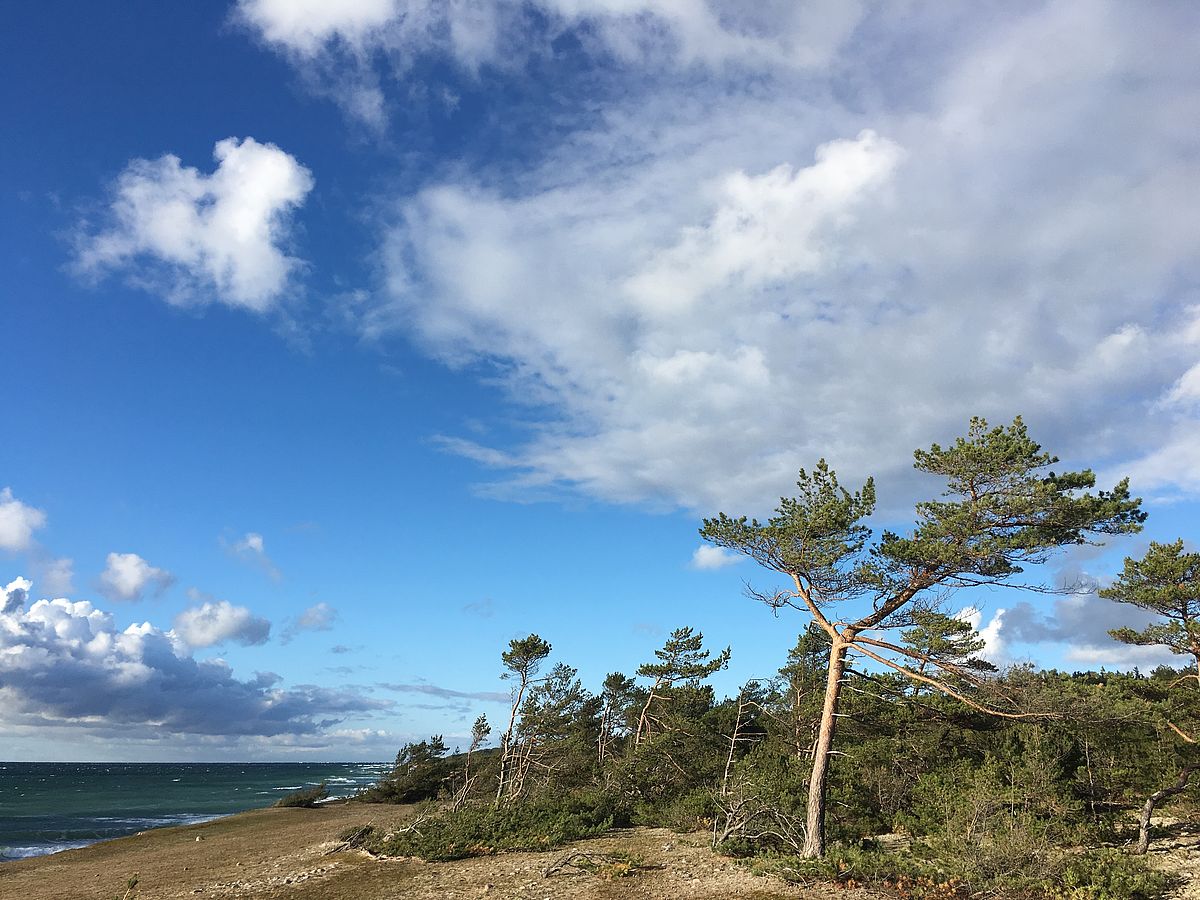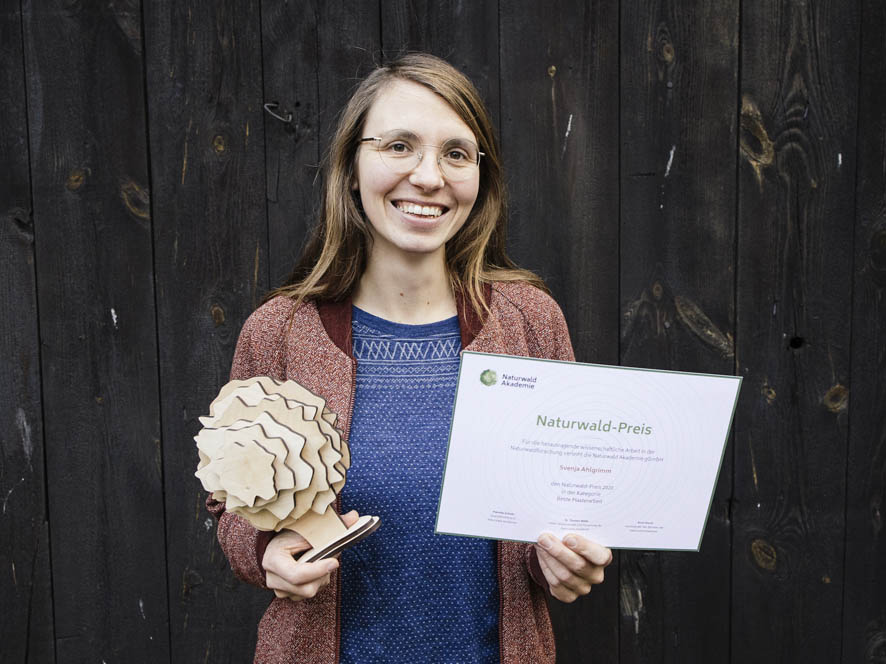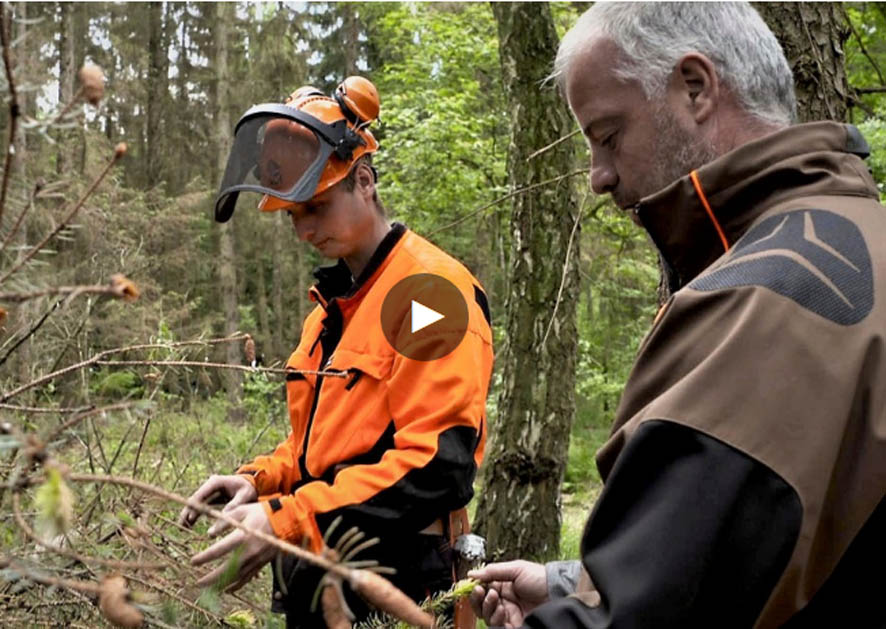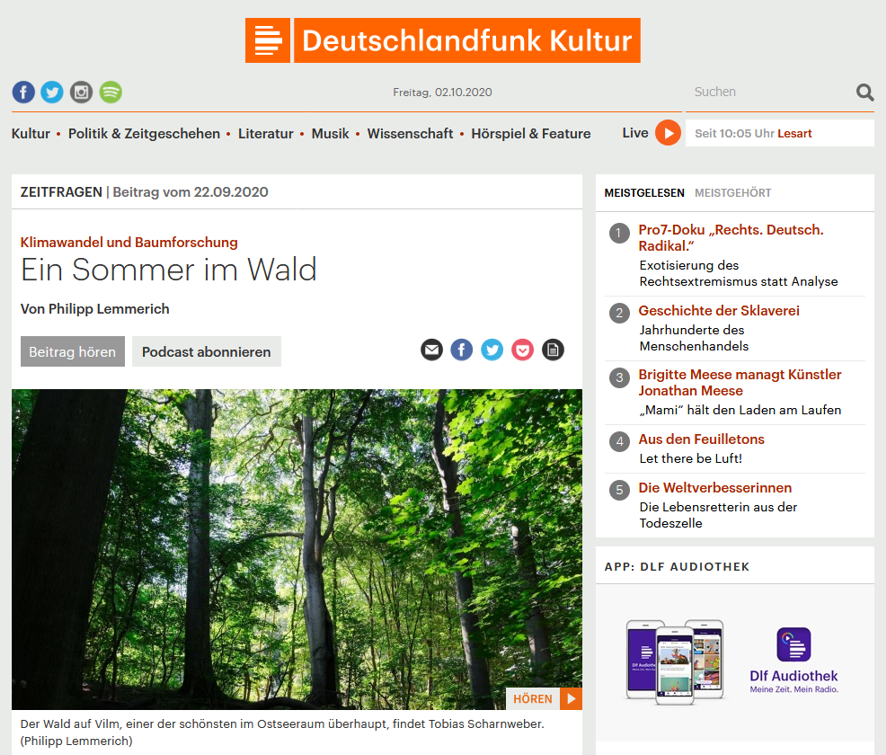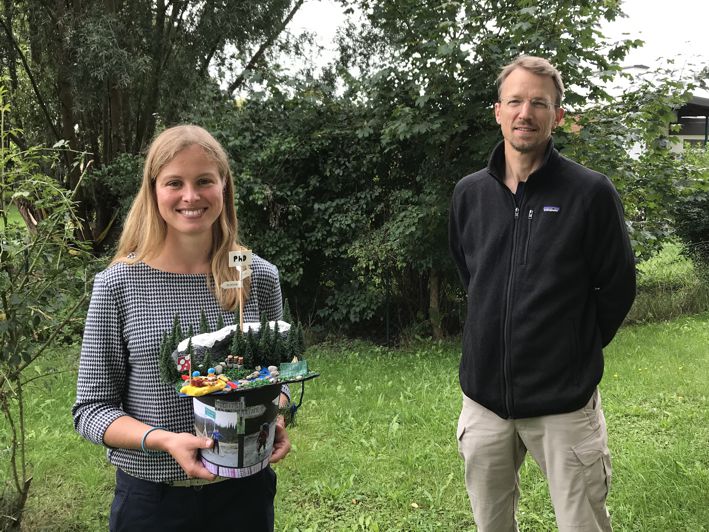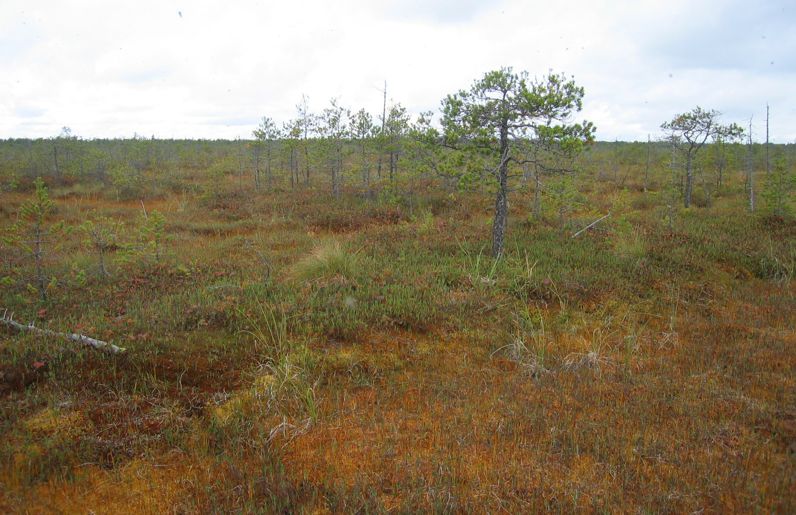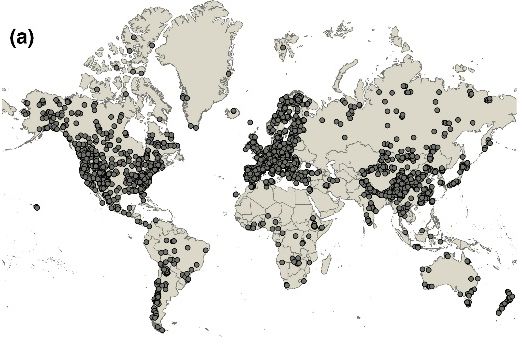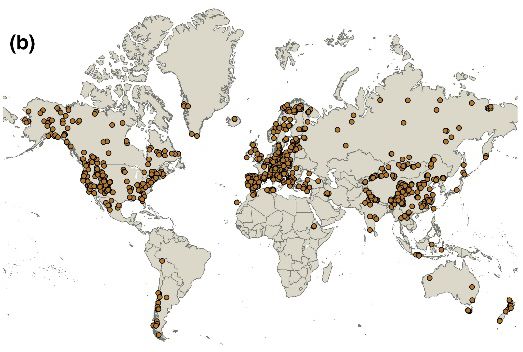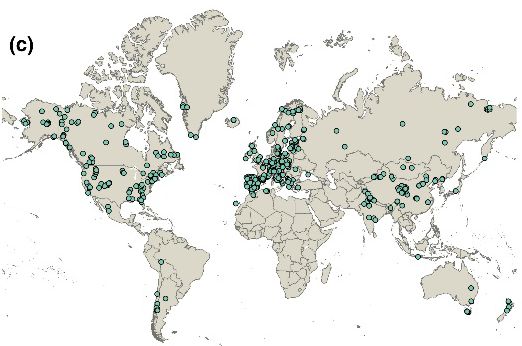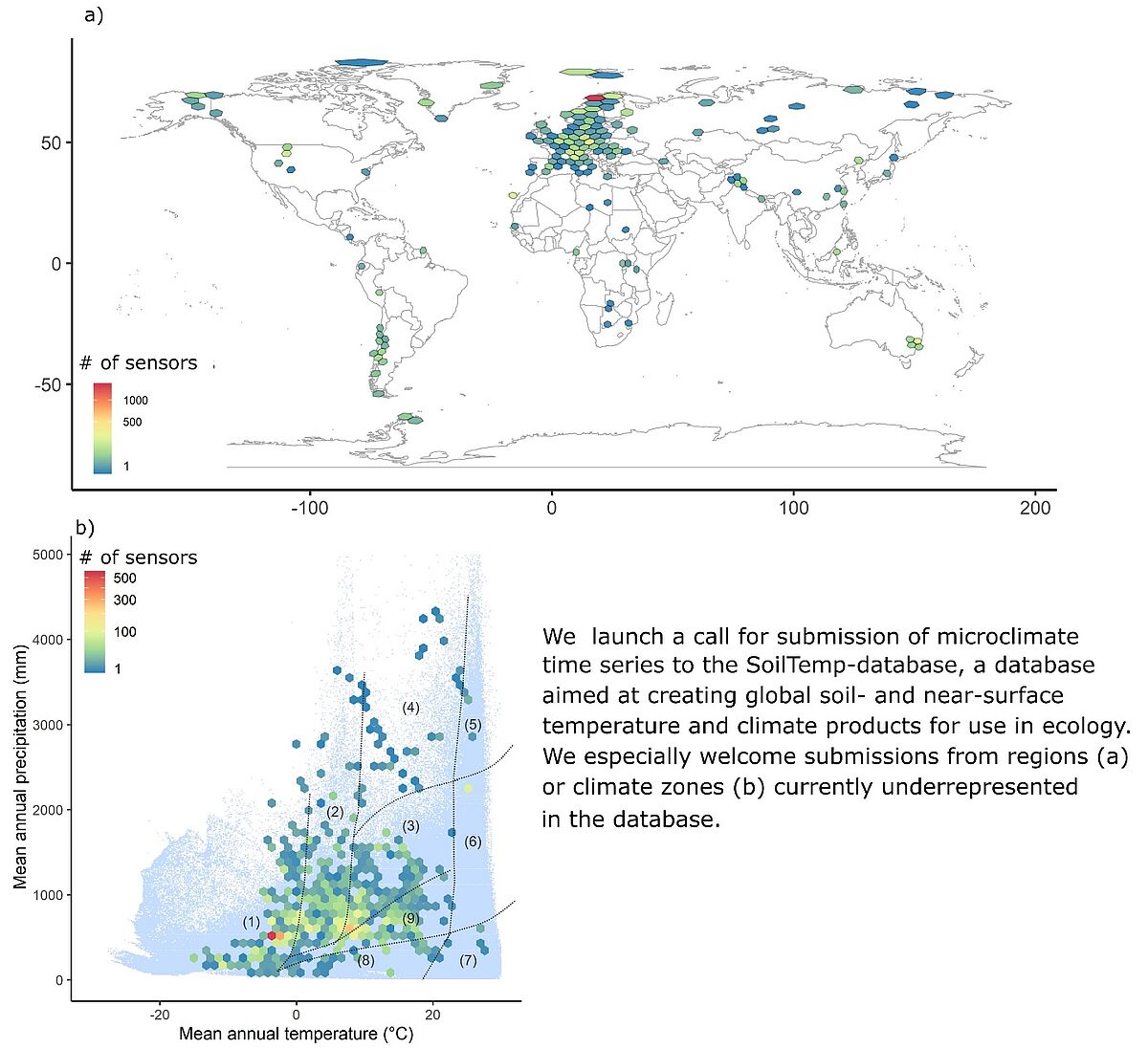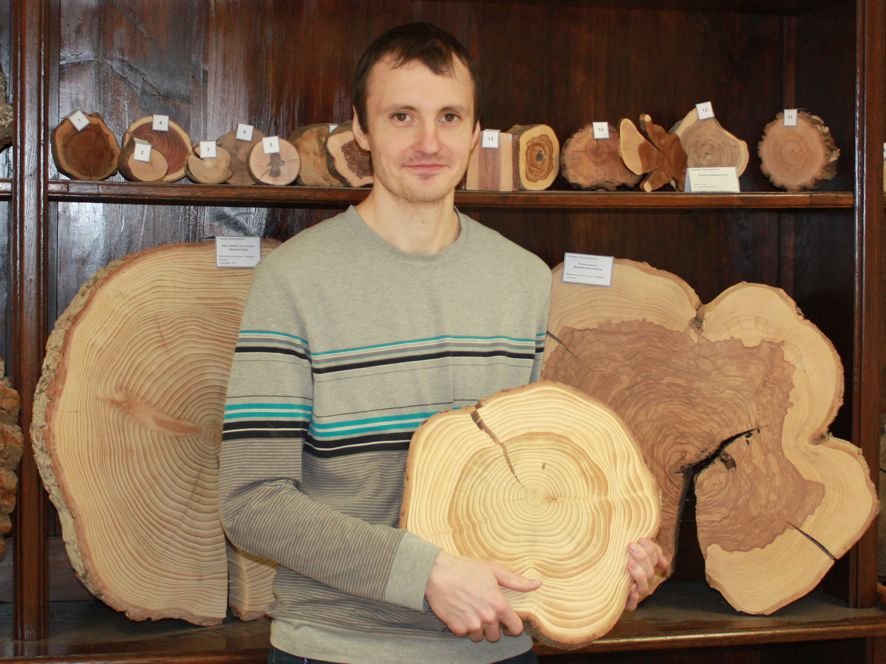30th of November 2020: Natural Forest Award 2020: Award for young natural forest researchers
"With wet feet fit for climate change?" Svenja Ahlgrimm was awarded the Natural Forest Prize 2020, which is awarded annually by the Natural Forest Academy. In her master's thesis, Svenja studied the effects of peatland rewetting on adjacent forest stands. More water in the landscape also helps the forest!
In an German-speaking interview with the Natural Forest Academy, Svenja gives more details about her research.
7th of October 2020: Die Nordreportage: Die Waldretter
Drought and mild winters - Mecklenburg-Vorpommern's forests are suffering. Nature lovers and experts are looking for solutions.
On October 7, NDR television showed a 24-minute program entitled "Die Naturreportage: Die Waldretter" ("The Nature Report: The Forest Saviors") about the drought, forest conversion and the future of our forests. Among other things, the film was shot at our research plot in Eldena.
The program is still available in the NDR Mediathek until October 7, 2021 (only in German).
22nd of September 2020: Climate change and tree research - A summer in the forest
On three excursions in June, July and September 2020, the reporter Philipp Lemmerich accompanied Tobias Scharnweber during field research at different locations as well as in our dendrology laboratory. Under the focus "Climate Change and Tree Research - A Summer in the Forest", the question of how a tree researcher can help to counteract climate change will be investigated. Tobias Scharnweber talks about the forest - and what insights dendroecology brings.
The article was broadcast on Deutschlandfunk Kultur on 22nd of September 2020 and is still available (only in German).
11th of September 2020: Ph.D. Colloquium
Jelena Lange's topic of here Ph.D. was „Drivers of unstable climate-tree growth relationships in the circumpolar boreal forest in time and space“. On September 11th she successfully defended here doctoral thesis. Congratulations!
May 2020: New article in Nature Climate Change
“Increasing contribution of peatlands to boreal evapotranspiration in a warming climate" suggests new study from Nature Climate Change. We are happy to be part of this international effort!
university press release (only in German)
April 2020: Trees react to climate – but is that reaction stable in time?
New paper in Global Change Biology from our group. Hope to spark discussion with our “Opinion”!
April 2020: Climate stations just don’t do the trick for ecologists… it’s the soil!
SoilTemp launched with paper in Global Change Biology from Jonas Lembrechts and our contributions.
April 2020: University forests reveal effects of drought on important tree species in Germany
New study by Tobias Scharnweber et al. (published in Environmental Research Letters) shows the effect of two consecutive drought years, 2018 and 2019. In 2018, even though it hardly rained, there was enough soil water – trees grew fine. In 2019 it became too dry – trees suffered badly.
see also dpa (in German only):
www.rnd.de/wissen/klimawandel-hitze-und-durre-lassen-deutschlands-walder-leiden
March 2020: ARS LEGENDI Faculty Award for Professor Martin Wilmking

The Ars legendi Faculty Award for Mathematics and Natural Sciences honours scientists who distinguish themselves through outstanding, innovative and exemplary achievements in teaching, counselling and support.
In the Biology category, the award goes to Martin Wilmking, landscape ecologist at the University of Greifswald. The jury was won over with his wide range of teaching methods adapted to a wide-ranging audience. In order to meet the challenge posed by different levels of previous knowledge and different learning speeds, Wilmking aims to activate students and has converted all lectures into interactive courses. In doing so, he relies, among other things, on the use of different teaching concepts such as "peer groups" and the "Flipped Classroom", as well as innovative forms of examination and the consistent use of immediate digital feedback.
Further information (only in German):
www.stifterverband.org/pressemitteilungen/
March 2020: Article in Nature Communications
Most of the variation in six plant traits critical to the growth, survival and reproduction can be explained by just two dimensions, corresponding to strategies of 1) plant size and 2) resource acquisition. However, it was unclear whether global plant trait relationships hold true in climatic extremes, such as the Arctic tundra. A new paper out in Nature Communications shows that “Global plant trait relationships extend to the climatic extremes of the tundra biome”. Our working group contributed data to this true international effort of over 100 scientists. All together we compiled over 50,000 new trait records, allowing for this large-scale analysis.
Further information: iDiv: Plant life on the edge
01st of March 2020: Humboldt Research Fellowship
Dr. Jan Tumajer is a new postdoctoral researcher at the "Landscape Ecology and Ecosystem Dynamics" working group of Prof. Martin Wilmking at the Institute of Botany and Landscape Ecology. He comes from the Charles University, Prague, Czech Republic, where he obtained a PhD in Physical Geography and Geoecology in 2017. His 20-month project, funded by Alexander von Humboldt Foundation is focused on the validation of process-based models of wood formation at intra-annual scales.
3rd of February 2020: Reinforcement for our working group
We welcome the two newcomers Elisa Schmidt and Alexander Seliger to our team.
Both of them have recently joined the institute and will focus on sustainable land use in the Greifswald region in the next months. The aim is to develop a concept for more environmentally friendly forms of land use in cooperation with various stakeholders.
We are looking forward to a good cooperation.
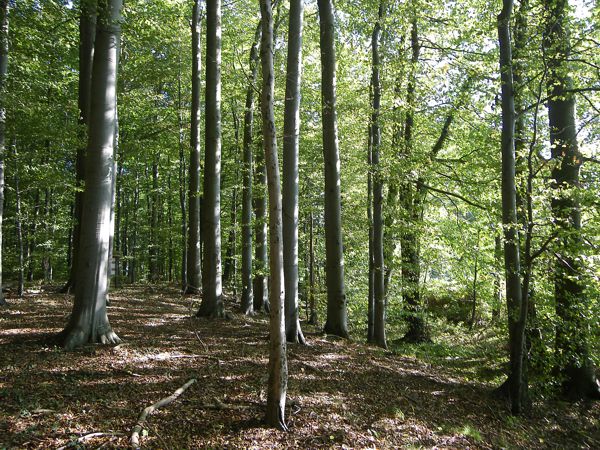
3rd of February 2020: Article on the greening of the Arctic
The plants of Arctic regions react to rising summer temperatures. As the snow melts earlier, plants start growing earlier in spring. Tundra vegetation can in this way spread to new areas and the plants can also grow higher - the so-called "greening of the Arctic". A 40-member international research team from 36 institutions, including the University of Greifswald and the Senckenberg Society for Nature Research, has used modern technology to find out that the causes of these processes are more complex and variable than previously assumed. The results are presented in the article "Complexity revealed in the greening of the Arctic" in the current issue of the journal "Nature Climate Change".
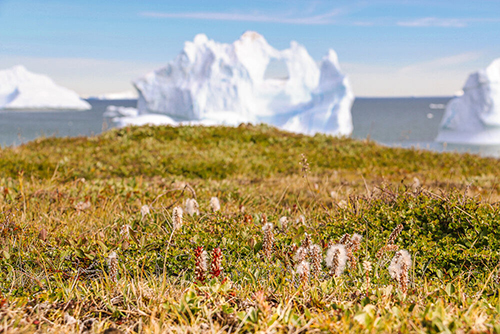
16th of January 2020: Article on the influence of climate change on trees in the Baltic Sea region
Our forests grow slower under the influence of climate change. This is the conclusion reached by an international research consortium led by the University of Greifswald, which evaluated data from over 300 forest sites. The results have now been published in the journal Global Change Biology.
